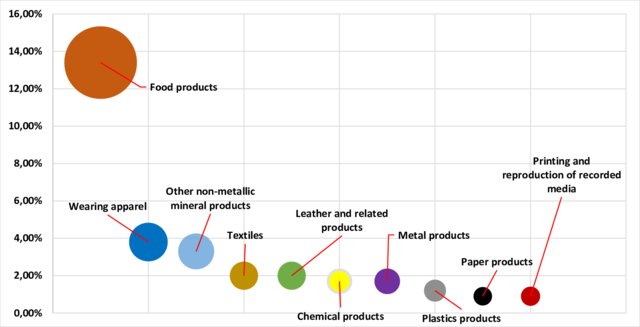

USING INDUSTRY 4.0 TECHNOLOGIES TO ENRICH THE MANUFACTURING SMES IN EGYPT
Egypt's vision 2030 is a national strategic vision formulated in 2016 with the set goal to attain the comprehensive sustainable development of the economy, society, and environment in three main aspects. On the economic front; Egypt is committed to decreasing the budget deficits and public debt achieving sustainable GDP improvement and becoming one of the world's top ten economies by 2030. Given Egypt's vision for 2030 and the objective of economic improvement; decision-makers are giving priority and attention to advancing small and medium-sized enterprises SMEs as the main enabler of significant economic growth by developing opportunities for digital transformation and enhancing the flexibility and competitive advantages of the Egyptian industries and the benefits of export trade. This paper discusses the ability of manufacturing SMEs to contemplate and adopt Industry 4.0 technologies in terms of knowledge gaps, motivations, and challenges. It also proposes a pattern of technology selection and prioritization considering the limitations of small and medium-scale organizations. In the last decade markets categorized with the raises and complex competition from the perspective of innovations, prices, quality, consumer behavior, and scarce of raw material; therefore, it is mandatory to adopt technologies that can support the manufacturing sector to achieve competitive advantages to the Egyptian products and guarantee a footprint among other economies. The fourth industrial revolution is the successor innovative concept of three earlier traditional manufacturing and industrial practices. It is also known as the rise of the digital technological Industry as it introduces a more comprehensive, linked, and holistic approach to the manufacturing process by connecting the industrial physical elements with the digital technologies Industry 4.0 introduced the concept of smart factories through the interconnectivity via the implementation of the Industrial Internet of Things (IIoT), access to real-time data, and the advancement of cyber-physical systems. Digitalization returns with the efficient collaboration among the corporates' value chain, effective vertical and horizontal integration processes, Increases quality and lean manufacturing, agility and flexibility, advantage instant data to boost productivity, improve processes, and finally drive growth. A qualitative analysis was performed to identify the motivations and capabilities for industry 4.0 to support the Manufacturing SMEs and the challenges of application. The analysis results indicate the potential to enrich SMEs' business to achieve the target competitive advantages through the implementation of lean manufacturing, agility, flexibility, and target quality by raising the awareness and Industry 4.0 capabilities usage and the proper selection and prioritization of available technologies. Meanwhile, the cost of acquiring technologies and skilled labor still the main challenge for the time being but such challenges can be controlled through governmental programs for the Manufacturing sector. Copyright © 2021 by Naudé Scribante. Permission granted to IAMOT to publish and use.